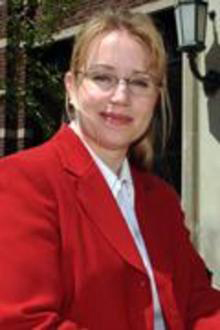By Adam Ernette | For the Duquesne Duke
Chemistry professor Fraser Fleming received a $126,000 grant from the National Science Foundation (NSF) to further his research on changing the shape of compounds.
Fleming’s research deals with pharmaceutical agents that contain two nitrile groups, including the drug Anastrazole, the “gold standard” for breast cancer treatment, Fleming said.
By manipulating the shapes of these compounds, Fleming said his group has been able to look at the intermediates of a reaction and be “tuned to change like a chameleon.” Fleming also said he hopes to make drugs react more efficiently within the body.
“Medical cases in the last few decades show that a molecule’s shape determines physiological response,” Fleming said. “So two molecules that have the same representation can have wildly different properties.”
The newest grant will send four graduate students to Germany and Sweden, allowing them to utilize facilities outside of the university for further training.
“The grant has received two supplements that have allowed me to take four graduate students to institutions in Germany and Sweden to allow for training in new areas and to provide access to facilities not available at Duquesne,” Fleming said.
Over the past ten years, Dr. Fleming has received approximately $1.5 million in funding from the NSF. This money not only goes to research in his field, but to the education and training of students, according to Fleming.
In 2002, Fleming received his first grant of $265,000 from the NSF and continued to pursue funding for the research of nitriles and isonitriles. Nitriles are “very powerful species used mainly to connect two molecular pieces by a carbon-carbon bond – the most important bond in Organic Chemistry,” according to Armando Lujan Montelongo, Fleming’s Postdoctoral Fellow.
“The NSF has a mandate to fund science in many areas with an impact in society.”
Fraser Fleming
The newest grant will also assist Metalated Nitriles: Unmasking Fundamental Reactivity, Fleming’s latest research project – a topic that is relatively “undeveloped,” he said.
Fleming’s lab consists of three graduate students, according to Lujan-Montelongo.
“Dr. Fleming’s group is one of the leading synthetic organic chemistry groups in the field of nitriles,” Lujan-Montelongo said. “Fundamental knowledge is everyday generated in our labs and this is printed in our group members when [receiving] training in state-of-the-art techniques and methods.”
A native of Queretaro, Mexico, Lujan-Montelongo spent time studying with “one of the most brilliant, and young, Organic Chemists in Mexico” at the National university. He also shows a dedication to improving students’ knowledge, in line with Duquesne University’s mission.
After being funded by the National Science Foundation for ten years, Fleming was appointed rotating program officer, a position in which he “[organizes] panels of experts to evaluate proposals and process the applications through to a funding decision,” he said.
After the change, Lujan-Montelongo has taken on more responsibilities and become laboratory manager.
According to Fleming, “[the] NSF has a mandate to fund science in many areas with an impact in society.”
His work with creating synthetic reactions to make pharmaceuticals more effective and efficient within the body is carried out under the hope that “my projects provide methods that are useful to researchers in organic and medicinal chemistry in synthesizing bioactive molecules.”




